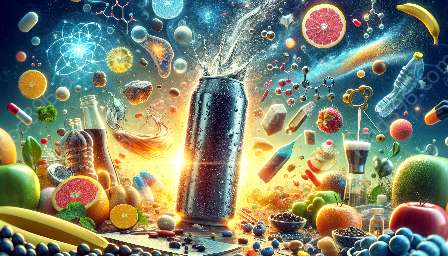Energy drinks have become increasingly popular in recent years, with people of all ages consuming these beverages for various reasons. Understanding the consumption patterns among different age groups is essential to comprehend the impact and implications of these drinks on public health. In this comprehensive guide, we will delve into the consumption patterns of energy drinks across various age groups, the ingredients and their health implications, and the broader context of beverage studies.
Understanding Energy Drink Consumption Patterns
Energy drink consumption patterns can vary significantly across different age groups. While the overall consumption of energy drinks has increased, there are notable distinctions in the patterns among adolescents, young adults, and older individuals.
Adolescents and Young Adults
Adolescents and young adults are among the most significant consumer groups of energy drinks. These age groups are drawn to energy drinks due to factors such as peer influence, need for increased alertness, and the desire for enhanced physical and cognitive performance. The consumption patterns in this demographic often revolve around social activities, academic pressures, and recreational pursuits.
However, excessive consumption of energy drinks among adolescents and young adults has raised concerns regarding potential health risks, including cardiovascular issues, sleep disturbances, and adverse effects on mental health. Understanding the consumption patterns in this age group is crucial for implementing targeted interventions to promote healthier beverage choices and lifestyle habits.
Older Individuals
While adolescents and young adults are significant consumers of energy drinks, there is also a growing trend of energy drink consumption among older individuals. Factors such as long work hours, increased demand for productivity, and the pursuit of an active lifestyle contribute to the consumption patterns in this demographic. Additionally, older individuals may consume energy drinks as a quick source of energy to compensate for age-related fatigue and diminished physical performance.
However, this demographic may be more susceptible to the health implications of excessive energy drink consumption, including interactions with certain medications, potential cardiovascular risks, and exacerbation of age-related conditions. Studying the consumption patterns among older individuals provides valuable insights into addressing the potential risks and promoting informed decision-making regarding beverage choices.
Ingredients and Health Implications of Energy Drinks
Energy drinks contain a variety of ingredients, including caffeine, sugar, amino acids, herbal extracts, and other stimulants. While these ingredients are intended to provide an energy boost, they can have significant health implications, especially when consumed in excess or in combination with other substances.
Caffeine and its Effects
Caffeine is a central component of energy drinks and contributes to their stimulating effects. However, excessive caffeine consumption can lead to adverse health effects, such as increased heart rate, anxiety, insomnia, and potential interactions with medications. Understanding the role of caffeine in energy drinks is critical for assessing the potential health risks associated with their consumption.
Sugar Content
Many energy drinks contain substantial amounts of sugar, contributing to their sweet taste and providing a rapid source of energy. However, high sugar consumption has been linked to various health issues, including weight gain, dental problems, and an increased risk of chronic diseases such as diabetes and cardiovascular conditions. Examining the sugar content in energy drinks is essential for promoting awareness of their impact on overall health and well-being.
Other Ingredients and Additives
Besides caffeine and sugar, energy drinks may contain additional ingredients and additives, such as taurine, guarana, and B-vitamins. These components can exert various physiological effects and may interact with other substances, contributing to the overall health implications of energy drink consumption. Understanding the diverse array of ingredients in energy drinks is vital for evaluating their potential effects and identifying any associated health risks.
Beverage Studies: A Broader Context
Energy drink consumption patterns and their health implications fall within the broader domain of beverage studies, which encompasses the exploration of various types of beverages, their cultural significance, health effects, and consumption trends. By examining energy drink consumption patterns in the context of beverage studies, we gain a comprehensive understanding of the factors influencing beverage choices and the impact of these choices on public health.
Furthermore, beverage studies encompass interdisciplinary research that delves into the sociocultural, economic, and psychological aspects of beverage consumption, offering valuable insights for developing policies and interventions to promote healthier beverage choices and consumer well-being. This interdisciplinary approach sheds light on the multifaceted nature of beverage consumption and its implications for individuals and society as a whole.
By considering energy drink consumption patterns alongside other beverages, such as sodas, sports drinks, and herbal infusions, beverage studies provide a holistic perspective on the diverse landscape of beverage consumption and its effects on individuals of different age groups and backgrounds.

